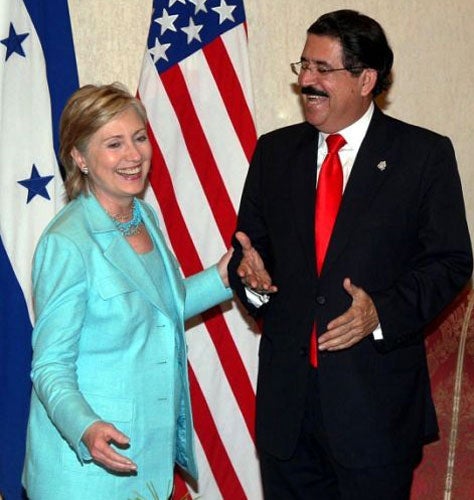American states lift 47-year ban as Cuba comes in from the cold

Your support helps us to tell the story
From reproductive rights to climate change to Big Tech, The Independent is on the ground when the story is developing. Whether it's investigating the financials of Elon Musk's pro-Trump PAC or producing our latest documentary, 'The A Word', which shines a light on the American women fighting for reproductive rights, we know how important it is to parse out the facts from the messaging.
At such a critical moment in US history, we need reporters on the ground. Your donation allows us to keep sending journalists to speak to both sides of the story.
The Independent is trusted by Americans across the entire political spectrum. And unlike many other quality news outlets, we choose not to lock Americans out of our reporting and analysis with paywalls. We believe quality journalism should be available to everyone, paid for by those who can afford it.
Your support makes all the difference.In a turning point for the entire region, foreign ministers of the Organisation of American States have agreed to lift a 47-year-old rule banning Cuba from their ranks, dating back to President John F Kennedy and the Cold War.
The decision was taken to acclamation at a meeting in Honduras that some feared would turn into a confrontation between left-wing states of Latin America, notably Venezuela and Nicaragua, pushing for the readmission of Cuba, and the United States, which argued the move should be taken on condition that Havana first takes steps towards democratic and human rights reform.
In the end both sides claimed victory. The return of Cuba to the OAS is not automatic. Cuba speaks, though vaguely, of its government entering a dialogue with the OAS about changes to its political system. Hillary Clinton, the US Secretary of State, who had to leave before the vote, said later that she was "pleased" with the outcome.
But proponents of ending the ban were ecstatic. "At this meeting today we have washed away a stain that had affected us all," said Nicaraguan President Daniel Ortega. But it cannot have escaped him or anyone else that only days before the meeting, Raul Castro, the President of Cuba, said he had no interest in rejoining the group.
Even so, in Florida Cuban exiles already dismayed by moves towards reconciliation with Havana taken by President Barack Obama, voiced horror at the move. The vote was a "putrid embarrassment", declared Lincoln and Mario Diaz-Balart, Republican members of the US Congress and brothers.
"Now we know where the priorities of the OAS lie," the Cuban-born Congresswoman Ileana Ros-Lehtinen said in a statement.
The vote is unlikely to be welcomed by Mr Obama, engaged in delicate diplomacy to coax Cuba towards reform. He has already eased restrictions on Cuban Americans sending money and visiting the island but has yet to indicate that he is ready unconditionally to lift the US embargo on Cuba which is so unpopular with many Latin American states.
Resolving the Cuba issue would go far towards healing suspicions that still linger across Latin America with regard to Washington. "The road to rehabilitating relations with Latin America is through Havana," noted Larry Birns of the Council on Hemispheric Affairs.
Subscribe to Independent Premium to bookmark this article
Want to bookmark your favourite articles and stories to read or reference later? Start your Independent Premium subscription today.
Join our commenting forum
Join thought-provoking conversations, follow other Independent readers and see their replies
Comments